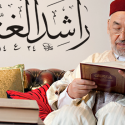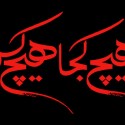The European Social Forum in London floundered over the issue of Islam’s relationship with the west, says Tunisian human rights activist Massoud Romdhani. He tells openDemocracy’s Rosemary Bechler why he prefers Marxist economist Samir Amin to Muslim reformer Tariq Ramadan.
Source : openDemocracy | 27-10-2004
openDemocracy : You were brought up in a Muslim family and went to a Muslim school when you were young. Are you a practising Muslim ?
Massoud Romdhani : No. I grew up loving the way the Qu’ran was written, but always believing that Islam should not be mixed with politics. Whenever this happens, various imams inevitably set themselves up as authorities over other people’s lives.
From the end of the 19th century, pan–Arabic and pan–Islamic movements have vied for influence in countries like ours. The Islamic movement developed in the 1950s in Egypt and spread to various countries. In Tunisia, it arose, particularly in the 1970s, as a sort of riposte to the leftist ideas that were prevalent at the time. Many people are convinced that the then regime of Habib Bourguiba helped the Islamic movement establish itself.
From the beginning, the movement had nothing to say about problems such as polygamy, or the challenge of democracy. But my hope is that given time, its members will learn how to cooperate with those of us who do not belong to their way of thinking – and that this will lead, not to the seizure of state power, but to a real alternative to current and past regimes.
openDemocracy : If Tunisia is currently trapped between two extremes – an Islamic movement that rejects any kind of compromise, and authoritarian regimes – what is your room for manoeuvre ?
Massoud Romdhani : The vast majority in the Arab world felt that while they would have liked to see the mighty military force of the United States rebuffed, the killing of innocent people on 9/11 did not achieve that. In Tunisia, this is even more the case because thousands of people have gone as immigrants to the US, and been successfully integrated into the society there.
I would say that the majority of the public realises that all extremism achieved for the region was to encourage the same authoritarian governments to take back whatever small concessions they had offered to the people, with the tacit encouragement of the west.
When President Chirac of France came to Tunisia in December 2003 and people asked him about human rights abuses in the country, he said : “The first human right is the right to eat, to be cared for, to receive an education and housing.” What people understood by this was that in France, citizens might aspire to democracy, but here in Tunisia, all you really need is not to starve. We believe this is a form of racism. We don’t expect the west to solve all our problems. But we do expect anyone who has some influence and a platform to express their views, to state that we are all equal when it comes to the need for democracy and human rights observance.
Tunisia and the European Social Forum
openDemocracy : What did you hope to learn when you attended the 2004 European Social Forum (ESF) in London ?
Massoud Romdhani : The ESF is an example to us. 20% of the participants here are unemployed. No other forum that tries so hard to integrate these people into the centre of political debate. The same goes for women. Many of the women who attend these forums are suffering from acute forms of inequality, even violence. So this forum is attempting something rather unique – to help include all these people into an enabling movement.
In Tunisia, a rather small group of people began to think about how we could use this idea. Tunisia’s trade union movement has been severely weakened by globalisation and demands for labour to be flexible. Only 15% of all workers are unionised, but as few as 5% in the burgeoning private sector. In these circumstances, we took a few first steps – visiting smaller, non–unionised enterprises where hunger strikes were taking place in protest at the conditions of employment, and speaking out about human rights and democracy.
openDemocracy : How important to you is it that the European Social Forum is part of an international movement ?
Massoud Romdhani : Any world movement that tries to bring people together interests the League of Human Rights very much. I would like to see joint action developing between movements of people who are oppressed in the same way, no matter what cultures they belong to or where they come from. My dream is that one day, we will realise that we share the same values, hopes and fears and not a civilisational clash of cultures.
Moreover, it is noticeable that our government is rather more concerned about its reputation abroad than at home. That is one reason why I am glad to have done three interviews with the media while I was here. Most governments in the middle east try to establish a wall between themselves and the rest of the world so that they can maintain the fiction that everything in the garden is lovely. What makes our experience ten times worse, is that we cannot speak openly, or seek a solution to our ills.
openDemocracy : Tariq Ramadan seems to have been very prominent again in this ESF. What did you make of him ?
Massoud Romdhani : I find anyone who couches their arguments in religious terms simply too vague for me to assess what exactly they would do in certain circumstances, and what they recommend by way of a political programme. Just because there is a rising tide of anti–Islamic feeling in the world at the moment, for me it does not at all follow that there should be a pro–Islamic tendency in response. Tariq Ramadan’s interview with Nicolas Sarkozy on French TV was revealing here. A well–meaning audience came along to get answers from Tariq Ramadan that in my opinion he could not offer them. I think this applies generally : anyone who brings religion into political debate is either kidding himself, or kidding others.
I was much more interested in attending debates with the Egyptian economist and writer, Samir Amin, talking about the myth of development and growth and a new approach towards a sustainable society.
openDemocracy : The second European Social Forum in Paris in 2003 had more media coverage. Why is that ?
Massoud Romdhani : The French public is more interested in these issues. One thing you have to say about the hijab debate in France was that it was a real debate ! Also the French platform speakers were noticeably more serious in their intellectual contributions : this is part of the culture. Every major paper, including the right–wing press, was pleased to carry accounts of the main debates.
Here, British speakers to the ESF in London struck me as more populist in their appeal, a group of leftists that the rest of Britain has little time for. In France the left are a part of the broad social debate, and its depth of reference goes back to the Paris commune, the French revolution and the preceding Enlightenment. This is a great tradition that has had an enormous impact on world culture, including human rights.
Having said that, nowhere else do you get the wonderful diversity of music and dance from every part of the devolved United Kingdom, and of course the great humour, the cartoons of Blair and Bush which give you a real break from all those debates. Every nation has something quite unique to contribute to this movement.
From dialogue to action
openDemocracy : Susan George spoke to openDemocracy in the run–up to this forum. She said : “I’m worried that we are using an ESF to repeat messages we proclaimed a million times before. I think we need to spend our time on organising among ourselves first…” Do you agree ?
Massoud Romdhani : To have so many people coming from different nationalities who nevertheless share the same preoccupations is really unforgettable. At the same time, I have two worries. First, it is a fact that the social forums are just intended as a place where people exchange views and do not take decisions.
Second, it is striking that all these thousands of citizens of supposedly democratic countries who express passionate criticism of their governments and of world governance in general are paid little attention by most of their political representatives. This is very troubling, because I can’t help thinking that on this rests the future of democracy in the west.
openDemocracy : So what changes would you like to see in the forum process itself ?
Massoud Romdhani : This should not be a place where people offload their frustrations ; or where you go and pick holes in other people’s ideas. It should be an event where people think, and when they go back home, try and implement what they think is right. Doing something is very important because otherwise, every year, people will just return home and start waiting for the next one !
We have set up a committee in Tunisia with the idea of holding our own social forum, perhaps in May or June 2005. Our starting–point is that there are many people whose lives are affected by political totalitarianism and globalisation, and they should all be included.
We will study the other forums and see what we can learn from them for our own process. Meanwhile, Alexandra Palace, the location of the European Social Forum, is the one place in London where you can go and everyone says “Hello” to you and smiles and asks you how you are doing. That’s really something !





iThere are no comments
Add yours